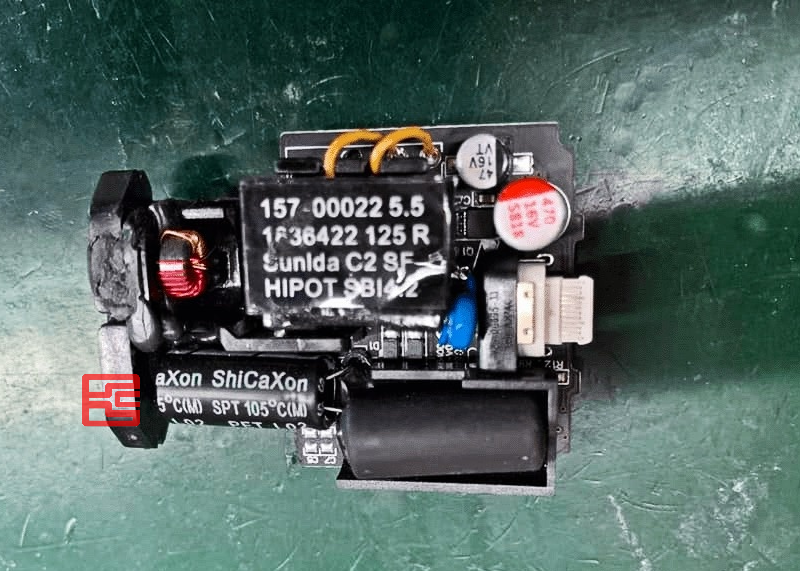Common problem
How does the environment affect capacitor performance?
The performance, storage life and service life of capacitors depend not only on the materials and workmanship of the capacitors themselves, but are also determined to a large extent by the environmental conditions in which they are located. And the effect of a single environmental factor on capacitors cannot be considered only, but also the effect of different combinations of these environmental factors must be considered. The main environmental factors that affect the performance and life of capacitors are: ambient temperature, humidity, vibration, shock, acceleration and atmospheric pressure, etc. The results of these single environmental factors are ranked as follows: environmental cycling > random vibration > high temperature > alternating damp heat > thermal shock > low temperature.

I. Ambient temperature
1. High temperature
The maximum working temperature around the capacitor is crucial to its application. The rise of temperature accelerates all chemical and electrochemical reactions, the dielectric material is easy to age, and the service life of the capacitor decreases with the increase of temperature. The change of capacitance with increasing temperature depends on the relationship between dielectric permittivity and temperature, there are positive temperature coefficients, i.e., the capacity becomes larger with increasing temperature, and there are negative temperature coefficients, and the capacity decreases with increasing temperature.
As the temperature rises, the electron activity increases, so the insulation resistance decreases with the increase of temperature. Dielectric strength also decreases with increasing temperature, so the operating voltage must be reduced when raising the upper operating temperature. High temperature causes oxidation of the metal, contact resistance increases, resistance increases and thus loss increases.
2. Low temperature
The material becomes brittle, the epoxy resin cracks and the protection is lost. Moisture penetration into the capacitor electrical properties decline.
3. High and low temperature shock
The expansion and contraction of the heat produces internal stress, and alternate condensation, freezing and evaporation, which makes the envelope layer crack, and the cracking leads to the infiltration of water vapor and accelerates the deterioration of capacitor performance.
Ⅱ, the humid environment
1. High humidity
Water vapor condenses on the surface of the capacitor and is absorbed, causing the insulation resistance of the capacitor to drop, leakage and flying arc. The dielectric constant increases and the dielectric loss increases. Water vapor enters the internal metallization layer of the capacitor and is corroded, which makes the capacity smaller and the loss increase.
2. Hot and humid alternation
Water vapor is absorbed and diffused on the surface of the capacitor, and the effect of respiration and condensation of warming can accelerate the penetration of water vapor into the interior of the capacitor, making the performance of the capacitor deteriorate as described above.
In the case of the same relative humidity, when the temperature rises, the number of water molecules increases and the formation of molecular gaps accelerates, and water molecules can enter these gaps from the surrounding air and thus penetrate into the interior of the dielectric. In the case of the same absolute humidity, the lower the temperature, the higher the relative humidity, and the more moisture absorbed by the capacitor.
III . Dynamic Environment
Vibration, shock and acceleration are the main dynamic environments that can cause mechanical damage or injury to the capacitor, and small changes in the capacitor structure can cause changes in capacitance. In addition, it may cause lead breakage, poor contact, etc.
IV. Low pressure environment
Capacitors used in high-altitude environment, with the increase of height, the air pressure decreases, the air resistance strength decreases. Capacitor will produce flying arc, corona phenomenon, capacitor's voltage strength decreased. In addition, the thin air makes it difficult to dissipate heat. The temperature rise of the capacitor will be increased.



